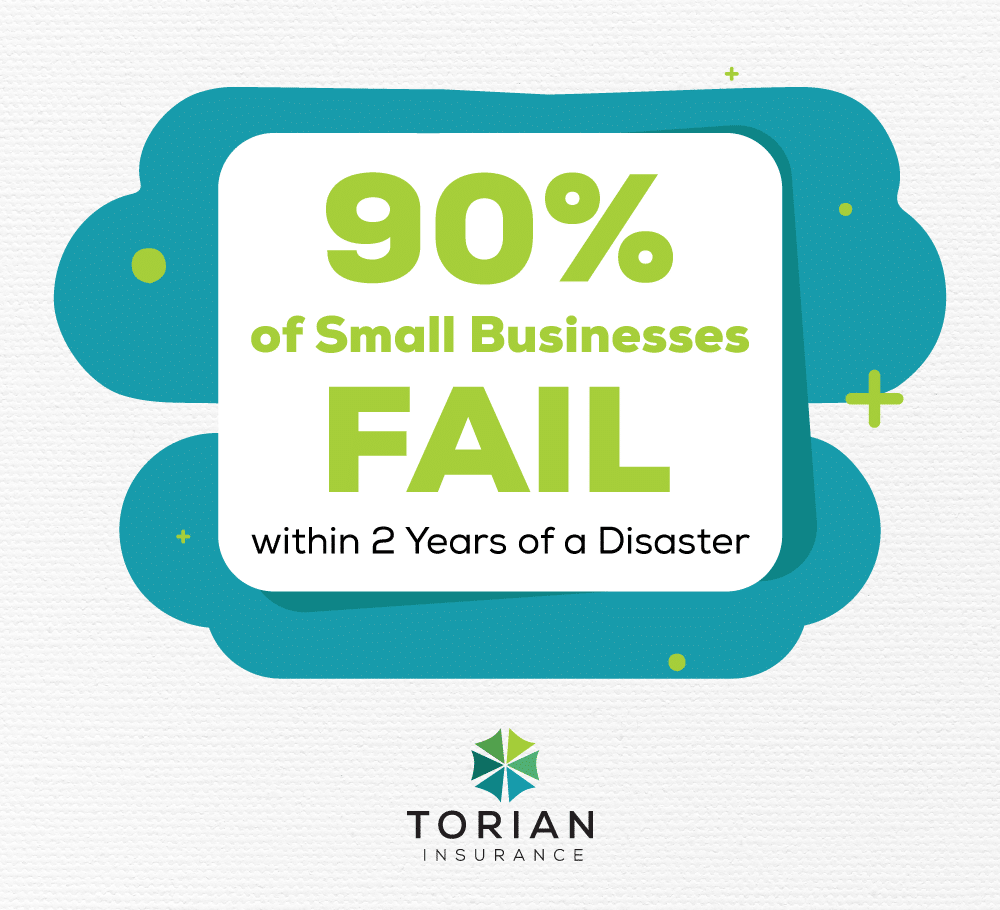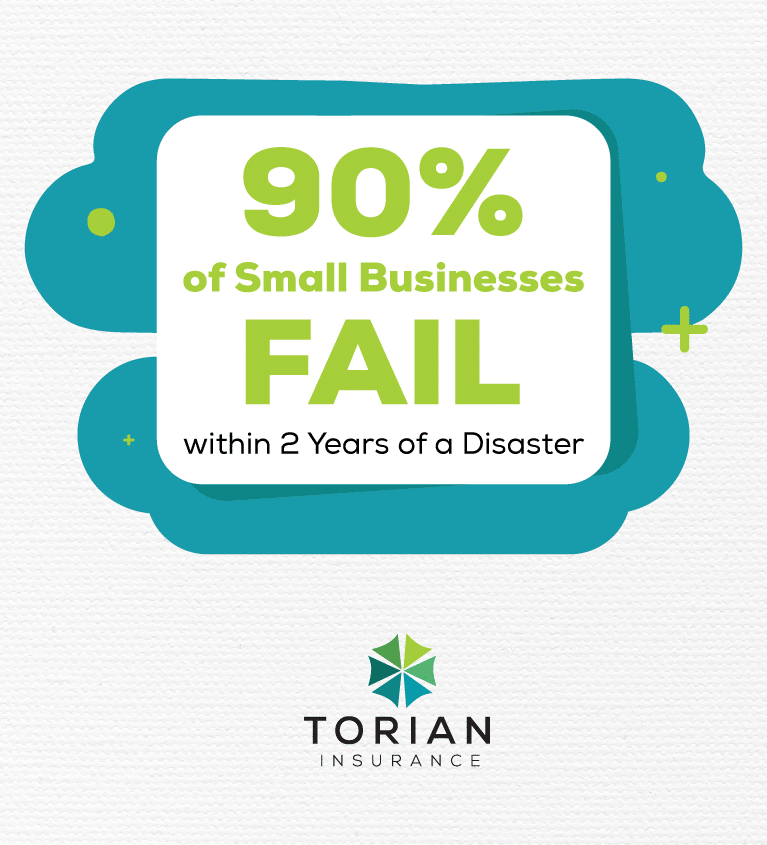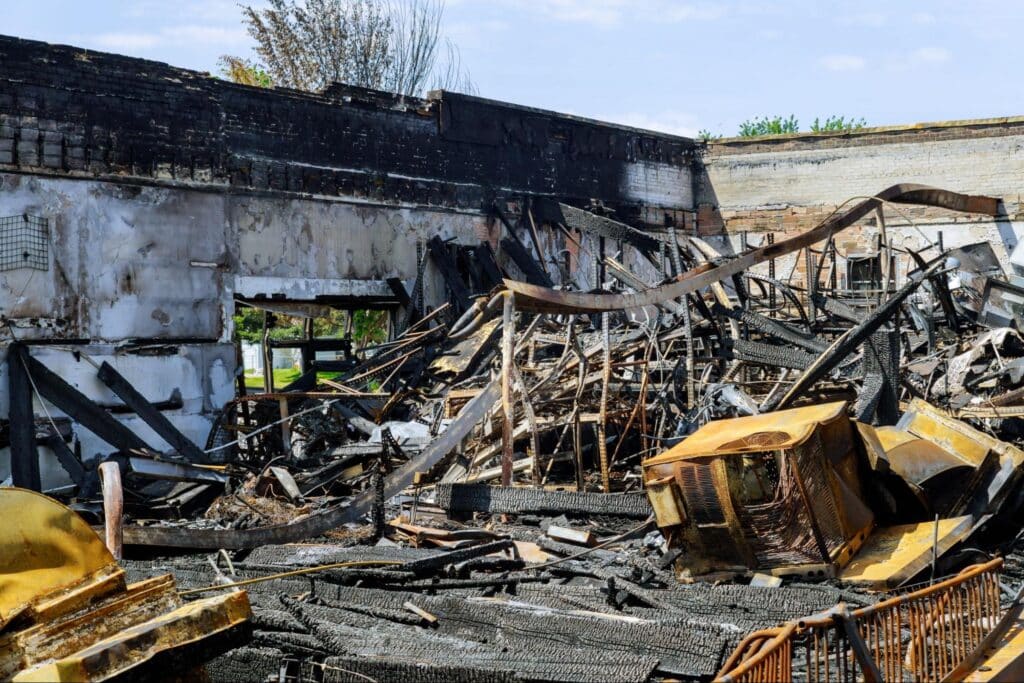Imagine the unthinkable: a fire breaks out in your facility or a powerful storm renders your operations inoperable. Your revenue stops while your ongoing financial obligations—rent, salaries, utilities, and loan payments—continue unabated. While property insurance covers physical repairs, it does not replace lost income or pay your bills during downtime. That’s where Business Interruption Insurance, a critical part of a broader Commercial Insurance framework, steps in as a vital financial lifeline to protect business finances. It ensures that, even during operational pauses, you have the resources to sustain your organization’s obligations.
At Torian Insurance, an Insurance in Agency Evansville, IN, we understand how integral Business Interruption Insurance is to your overall business protection coverage. We offer custom insurance solutions designed to help you rebound swiftly from unexpected disruptions and preserve your financial stability.
What Exactly Is Business Interruption Insurance?
Business Interruption Insurance, also known as Business Income Coverage, protects your business from financial setbacks when physical damage halts operations. The property damage has to be a covered insurance claim before the business income coverage kicks in.
Unlike property insurance—which repairs or replaces damaged assets—Business Interruption Insurance compensates for lost revenue and covers essential operating expenses. This coverage is typically integrated into a Business Owners Policy (BOP) or can be purchased as an add-on endorsement, highlighting its fundamental role in protecting your bottom line.
For example, if a fire damages a restaurant’s kitchen, property insurance pays for repairs, but you lose revenue while operations remain suspended. Business Interruption Insurance bridges this gap by offsetting lost profits and meeting expenses like rent and salaries.
Why Is Business Interruption Insurance Crucial for Your Business?
A temporary shutdown can cause severe financial stress. Without a steady income, meeting obligations like payroll, rent, and utilities becomes challenging. This may force you into expensive emergency loans or significant personnel cuts that impact your long-term competitiveness. Moreover, while your business is inactive, competitors might capture your market share and steal your staff. With adequate business protection coverage in place, you can focus on recovery rather than crisis management—ensuring continuity and long-term stability for your operations.
According to the Federal Emergency Management Agency (FEMA), approximately 40% of small businesses never reopen after a disaster, and an additional 25% fail within a year. Even more shocking, the Small Business Administration estimates that number is closer to 90% of businesses that fail within two years of being struck by disaster.This stark statistic highlights how detrimental even a short-term closure can be to any operation’s future viability. Business Interruption Insurance helps address this risk by providing cash flow during downtime, enabling you to sustain essential obligations and plan a strategic comeback.


The protection offered by Business Interruption Insurance acts as a safety net, allowing you to protect business finances and maintain both staffing and market presence during tumultuous times. It’s not just about immediate recovery; it’s about preserving the long-term health of your business.
What Does Business Interruption Insurance Typically Cover?
Business Interruption Insurance is structured to fill financial gaps when your operations are disrupted. The main components include:
- Lost Net Income: Compensates for revenue loss by using historical sales data to estimate what you would have earned under normal conditions. In these circumstances, the impact of lost net income can be significant.
- Ongoing Operating Expenses: Covers fixed costs such as rent, utilities, payroll, and loan payments, even during a shutdown. These ongoing operating expenses must be managed carefully to keep your operation viable.
- Relocation Costs: Provides financial support if you need to move temporarily due to damage. Effective planning for relocation costs can help shorten downtime.
- Civil Authority Coverage: Offers compensation when government mandates restrict access to your business, even if there is no direct physical damage. It’s important to know how civil authority coverage applies to your situation.
- Additional Options:
- Extra Expense Coverage: Reimburses additional costs incurred to reduce downtime. Learn more about extra expense coverage.
- Contingent Business Interruption: Covers losses if a key supplier or partner is affected by the same event. Find out how contingent business interruption can safeguard your operations.
These elements ensure that you can restart operations with minimal financial strain. Many policies also offer extended coverage periods that help bridge income gaps until business levels return to normal, thus supporting a smooth transition back to full productivity.
What Business Interruption Insurance Doesn’t Cover (Common Exclusions)
While invaluable, this insurance has limitations. Key exclusions include:
- Uncovered Physical Damage: The policy is triggered only by direct physical damage. If your property policy excludes events like earthquakes or floods (unless added), then corresponding interruptions are not covered.
- Excluded Perils: Typical exclusions include:
- Earthquakes and flooding (unless specifically endorsed)
- Wear and tear or negligent maintenance issues
- Acts of war or terrorism
- Pandemics and Communicable Diseases: Income losses due to pandemics or shutdowns not linked to physical damage are generally excluded.
- Labor Disputes and Economic Conditions: Interruptions caused solely by labor strikes or market downturns are not covered.
- Unverified Losses: Claims require solid documentation to verify lost income and expenses.
Understanding these exclusions will help you decide whether additional endorsements or specialized coverages are necessary to protect business finances effectively.
How Does Business Interruption Insurance Work in Practice?
Consider a restaurant whose kitchen suffers extensive fire damage. While property insurance covers repairs, the restaurant loses revenue during the closure. Here’s the process:
- Coverage Activation: The policy is triggered when a covered peril causes direct damage. A 24 to 72-hour waiting period often applies before coverage begins.
- Period of Restoration: Coverage continues until your business resumes normal operations. Keep in mind the path to full income recovery can be gradual.
- Documentation and Compensation: You must provide detailed financial records proving lost revenue and ongoing expenses. Once verified, the insurer compensates you up to the policy limits.
Data from the National Fire Protection Association (NFPA) indicates that local fire departments respond to thousands of fires annually, including incidents at business properties. Such events can sometimes result in property damage and business interruptions. This underscores why a carefully designed insurance package, including Business Interruption coverage, is vital for a prompt and stable recovery.
This structured approach allows you to focus on the practical steps of rebuilding and ensures that financial uncertainty doesn’t overshadow your recovery efforts.
How Much Coverage Do You Need? (And How Is It Calculated?)
Determining appropriate coverage requires detailed analysis. Key factors include:
- Projected Net Income: Evaluate past financial statements to estimate potential losses during a disruption.
- Fixed Operating Expenses: Include recurring expenses like payroll, rent, and utilities that persist even if revenue stops.
- Restoration Timeline: Estimate how long repairs or rebuilding will take, plus any delay in regaining pre-disruption sales.
- Additional Recovery Costs: Consider relocation, expedited repairs, or temporary equipment rentals.
- Time Period: Many BOPs include coverage based on a time period rather than an amount – many provide coverage for the actual loss sustained up to a 12 months following the covered loss. Policies that don’t include actual loss coverage will often provide a worksheet that aids in calculating the coverage amount
Regularly reviewing business operations and financial records will help you maintain accurate coverage limits. Some policies offer an agreed value option, pre-determining the limit to prevent underinsurance and streamline claims. Taking time to calculate possible downtime scenarios thoroughly is an essential step in ensuring your business remains adequately protected.
Policies that don’t include actual loss coverage will often provide a worksheet that aids in calculating the coverage amount
Who Needs Business Interruption Insurance?
This insurance is crucial for any operation reliant on physical locations or specialized equipment. It’s especially critical for:
- Location-Dependent Businesses: Retail stores, restaurants, and hospitality venues depending on steady foot traffic.
- Service Providers: Salons, dental offices, and auto repair shops where service delivery happens onsite.
- Manufacturers and Specialized Operations: Businesses that rely on specific machinery or unique supply chains, where disruptions may significantly halt production.
Even companies that maintain strong online presences remain vulnerable if critical physical functions or infrastructure are compromised. By considering these vulnerabilities in your broader Commercial Insurance strategy, you can put effective measures in place to maintain both workforce stability and customer trust.
Tips for Filing a Business Interruption Claim
A properly filed claim ensures rapid reimbursement. Follow these steps:
- Ensure Safety and Document Damage: Secure the premises and confirm the safety of personnel. Take photos and notes of all damage.
- Notify Your Insurer Immediately: Contact your provider as soon as possible, adhering to any reporting deadlines.
- Compile and Organize Financial Records: Gather profit-and-loss statements, invoices, and sales records to substantiate lost revenue.
- Collaborate with Your Insurance Agent: Partner with your agent to ensure all documents are prepared and that any requests from the insurer are promptly addressed.
Adhering to these steps helps you minimize administrative hurdles and accelerates your path toward renewed stability.
Integrating Business Interruption Insurance with Business Continuity Planning
Including Business Interruption Insurance in your continuity plan adds a layer of reassurance. Key actions include:
- Conduct Regular Risk Assessments: Identify potential disruptions and catalog critical assets.
- Align Coverage with Vulnerabilities: Customize your policy with an experienced agent to address your business’s top risks.
- Run Periodic Drills: Simulate crisis events to test and refine your response plans.
- Review Your Policy Frequently: Adjust coverage as your operations and revenue streams evolve.
Combining robust crisis management with appropriate insurance strategies not only safeguards assets but also boosts employee confidence and brand reputation. By weaving insurance into your overall preparedness plans, you position your company to handle disruptions with greater agility.
Additional Strategies for Enhancing Business Resilience
Beyond Business Interruption Insurance, resilience hinges on proactive planning:
- Invest in Employee Training: Workshops on emergency protocols help employees handle crises skillfully, reducing downtime.
- Leverage Technology: Cloud-based systems, data backups, and automated tracking tools keep vital information secure and accessible, ensuring you can operate remotely if necessary.
- Establish Strategic Partnerships: Maintaining relationships with local emergency services or industry networks can facilitate quicker resource sharing and support.
- Develop Mutually Supportive Networks: Collaborate with nearby businesses to create crisis response groups that offer shared resources and local insights when disruptions occur.
By focusing on these measures, you create a holistic emergency response framework that goes beyond insurance to protect every facet of your organization’s operations.
Looking to the Future: Strengthening Long-Term Business Resilience
Business Interruption Insurance serves as more than a temporary fix. It supports long-term growth by:
- Allowing you to pursue infrastructure upgrades and technology investments.
- Preserving capital to explore new markets or customer segments.
- Encouraging proactive risk management that reduces future downtime.
Implementing insurance solutions in conjunction with forward-looking strategies positions your company to thrive, even when a crisis strikes. Regular policy reviews ensure you continue to benefit from the most suitable coverage, enabling you to adapt to market changes and operational expansions over time. By blending a robust insurance foundation with risk analysis and strategic foresight, you’ll maintain both financial security and the flexibility to seize new opportunities.
Don’t Let Disaster Interrupt Your Business’s Future
Business Interruption Insurance is a critical piece of your overall business protection coverage. While property insurance repairs physical assets, only Business Interruption Insurance addresses lost income and ongoing expenses during a shutdown. This coverage ensures that you maintain operations, safeguard your financial commitments, and recover without undue stress.
If you’re unsure whether your current policy provides enough protection to truly protect business finances, take action now. The independent agents at Torian Insurance—your trusted Insurance Agency Evansville IN—specialize in custom insurance solutions that meet the unique needs of businesses across Southern Indiana, Illinois, and Kentucky.
Take charge of your business’s future—contact Torian Insurance for a comprehensive policy review or a personalized quote. We help your business thrive, even when a crisis strikes.



